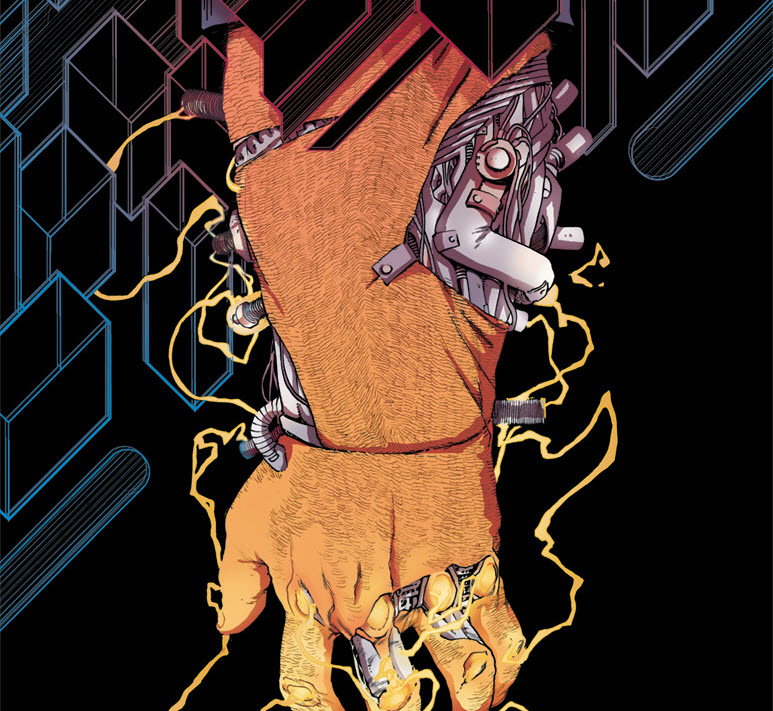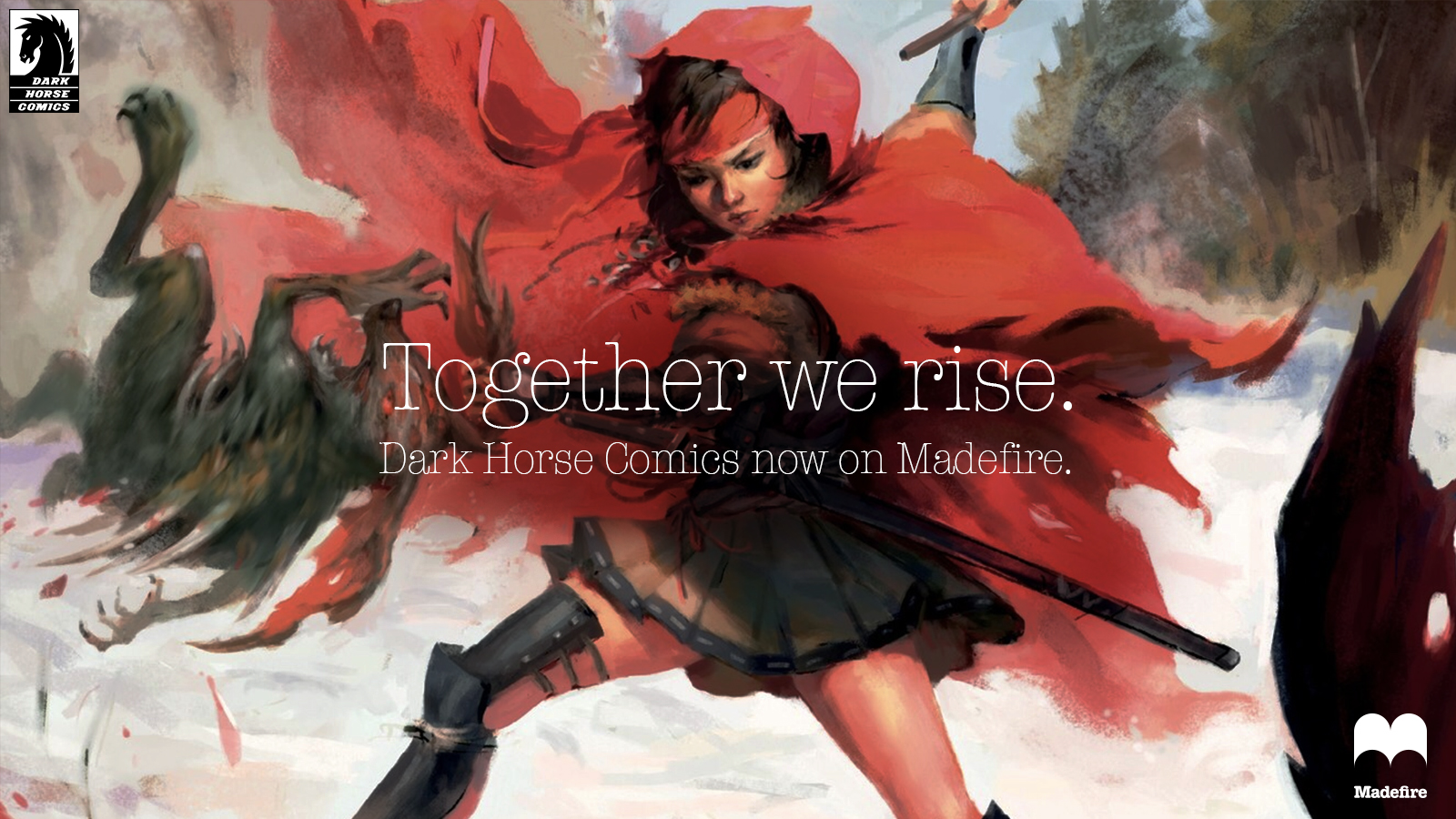UPDATE: Joey Manley happens to have added a very long list of articles on webcomics and digital comics content right here. Great resource for anyone thinking about these things.
UPDATE 2: Now Tom Spurgeon has weighed in with a long post, but here’s the money quote for us anyway:
* I can’t for the life of me figure out why all the comics companies haven’t pursued this more aggressively. All comic books should be available in digital form by now. When the notoriously conservative newspaper strip business is years ahead of you, you’re moving too slow. My only guess is that media companies may be resistant to change by nature and it’s only when an undeniably effective application drives the business in a certain direction that businesses follow. It’s worth noting that what we have in comics right now isn’t a breaking through a wall driven by a super-great way of reading comics that is years ahead of what we thought possible, but a slow thinning of a membrane in areas like speed of downloads and screen size that make reading comics through existing applications increasingly pleasurable.
As of this writing (a mortifyingly late hour) our reading comics on computer poll stood thus:
I like it BETTER than paper! (724) 53.47%
Pixels or pulp — doesn’t matter to me as long as its Bendis! (72) 5.32%
Only in an emergency. (558) 41.21%
That was a BIG come from behind victory for paperless reading. As of 6 pm it was more like 74%– some 500 souls — preferred paper, but somewhere along the way, either 600 people came along who liked onscreen, or someone set up a poll-voting widget or whatever. The poll was completely unscientific, but you can make of it what you will.
We have a bunch of “new media/tech” blogs on our RSS feed, but we only get to read them once a week or so. We checked them out today to test the pundit zeitgiest. Dealing with snippets of fact like we do, sometimes it’s hard to put together a coherent big picture. we can only get a pointilistic view of the world sometimes. But all of it points SOMEWHERE.
Scott Karp’s Publishing 2.0 pointed out three of what it called “Watershed Moments In The Publishing Industry’s Radical Transformation”. One involved the New York Times:
The New York Times, paper of record and one of the last great bastions of the belief that one entity can create all the content that anyone needs, has finally capitulated to the realites of the networked, content-exploding media world of the web. The Times announced that its new auto section online will aggregate third-party content:
The new Automobiles site introduces aggregated feeds, a new listings section, and vertical navigation. The new features mirror recent moves made by sports site SI.com and Time.com, among others that aggregate content from other sources with the goal to create the best one-stop destination for visitors who are passionate about a subject.
[snip]The Times, like all other media brands, is fighting tooth and nail against disintermediation, principally by search, but also by other aggregators like TechMeme (where I find all NYT articles on media and technology) and Digg.
We’d never heard of Disintermediation so we checked it out on Wikipedia!
In economics, disintermediation is the removal of intermediaries in a supply chain: “cutting out the middleman”. Instead of going through traditional distribution channels, which had some type of intermediate (such as a distributor, wholesaler, broker, or agent), companies may now deal with every customer directly, for example via the Internet. One important factor is a drop in the cost of servicing customers directly.
Wikipedia is itself an exampled of disintermediation, as the users become the creators. From where we sit, the only problem with the vanishing world of the middle-man, at least in the information business, is that you still need guideposts. It’s fine to read the source material where someting you are passionate about is concerned, but for that “big picture” you still need a trusted guide on some level.
Karp’s other big news was that
B2B publishers now get more revenue from events than print advertising, and custom publishing and digital media advertising are the fastest growing sources of revenue. Print ad pages declined 3% year-over-year in January 2007.
and
Finally, it has dawned on the rest the media/technology world what the real game is. Isn’t it clear now why Microsoft wants to buy DoubleClick — and why Google may try to head them off at the pass?
The media business is no longer about creating or even distributing content. It’s about controlling the platforms that create a marketplace for content and advertising. What is search but one big marketplace for content? Same with YouTube.
We’ve heard the platform argument from other people, and its a viable one. See our previous post on Joey Manley’s thoughts.
Of course all of this falls into the Long Tail yadda yadda. Variety reports today on a talk by media-management maven Jordan Levin who proclaims the “Mass Media era ending” which is old news by now.
“We’re in a transformative media age. We’re seeing the vanishing of mass media,” Levin said. “Mass media is being replaced by customized, targeted media….The old adage ‘adapt or die’ has never been more pressing.”
Levin, the former CEO and programming chief at the WB Network who co-founded management-production banner Generate last year, noted that traditional media concerns are having a particularly hard time getting with the program because of bottom-line pressures. Levin’s suggestion? Talk to the assistants and other youthful types who populate the cubicles, if not the executive suites, at networks and studios. That’s where the next genius idea a la YouTube will come from, Levin posited.
Oh yes, talk to the kids. That’s the answer! We doubt that putting on an American Apparel hoodie and showing off their New Balance Super Team 33s will really allow old mega media types to blend in, but its a comforting thought.
And what’s Levin’s own plan? Stay tuned, here comes the SHOCK ending!
Santa Monica-based Generate’s goal is to be a “pure-play content company” that produces for a range of platforms, Levin said. The company has a first-look deal with MTV Networks and has already seeded some MTV sites with Web-exclusive content. But it has also waded into more familiar waters with a number of pilots in development at traditional networks and plans to launch a publishing imprint for graphic novels, Levin said.
And what do we think? A Homer, a Dickens, a Disney, a Miyazaki, a Rowling all rise above platforms. We’re still for content uber alles. You must remember this, a kiss is still a kiss. The fundamental rules apply.









I don’t mind reading comics on a computer screen. And when you can buy nearly every back issue of X-Men or Spider-Man for under $50.00 and not have to worry about storage…? Heck yeah!
I wonder how many computer-phobes have participated in your little online survey…? ;-)
I’m carrying this over from the other posting, Heidi, but I still don’t get, for a non-comics professional or a possibly a non-student, or a non-comics-blogger, what a comic-book “emergency” is. (I’m going to guess that not all of those 558 responders are one of the above.)
From a fan perspective, what is a comic-book emergency? Captain America is sold out or selling for too high a price? They can’t figure out what’s going on in the comic they’re reading and wikipedia isn’t helping?
There are certainly times when paper comics aren’t available. Downloads are comics on demand, essentially. People may not have the money or the time, or the book could be sold out.
Posting from the #2 train…
I tried to vote, but got gibberish from the poll site. I’m the kind of guy who reads comics ANYWHERE: subway ads, cereal boxes, even cellphones if the image is large enough.
What I like is the ease of speaking with creators directly. I’ve never mailed a letter to Marvel or DC. Yet I can send email instantly and sometimes get a reply.
And I do buy the trades when they become available. And sometimes I reward online strips the greatest honor: I print a copy and stick it on my refrigerator.
TOTORO!!
WOO HOO!!
Oh, and uh… paper, please.
I wonder how many computer-phobes have participated in your little online survey…?
You took the words right out of my mouth. ;p
And if The Beat were in print, I’d most likely be reading it on paper than online, as well. :D Monitor bad. Print gooood. ^_~
Emergency means no other way to read the comic. I much prefer my comics on paper, but there are some webcomics I do read because that’s the only way I can read them. I’m not a computer-phobe; on the contrary, I already spend way more time on the machine than is probably healthy for my failing eyes. I have to wear special glasses just to see the computer screen clearly, my regular bifoccals aren’t strong enough. And if you’re guessing I’m kinda old, you’re right!
notebook pda buy notebook today 5113 as5715z 1a1g08mi nout
Comments are closed.